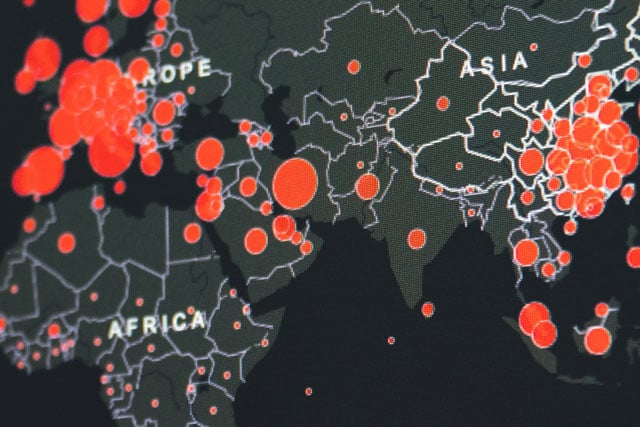What Happens to Civic Space After COVID?
GLOBAL PROGRAM
In early 2020, as COVID began to spread globally, ICNL recognized the repercussions of states’ emergency responses on fundamental freedoms and civil society. In Sri Lanka, organizations faced harassment from intelligence agencies under the guise of contact tracing. In Bangladesh, ‘fake news’ laws led to arrests of doctors, activists, and students who criticized the government’s pandemic response. In Chile, pandemic regulations have been used to suppress demonstrations and justify police violence against peaceful protests.
In March 2020, we launched the ICNL-ECNL COVID-19 Civic Freedom Tracker to document this global trend. Our tracker shows that 175 countries have enacted emergency pandemic measures. As we saw after 9/11, these measures seep into legal frameworks and may remain in place even after the initial threat subsides.
To address this, ICNL partnered with the Swedish International Development Cooperation Agency (Sida) to convene a high-level meeting in May 2021 on protecting civic space and ending unnecessary emergency measures.
Panelists from international organizations, states, and civil society shared first-hand accounts of the impact of emergency responses on their work and communities. UN Special Rapporteur Fionnuala Ní Aoláin, the moderator, remarked, “in some contexts, the measures taken are worse than the pandemic itself.”
The event’s takeaways have been reflected on international and regional stages. At the UN Human Rights Council, states, including Sweden, have spearheaded resolutions highlighting the impacts of emergency measures and their human rights obligations. UN Secretary-General António Guterres advised “safeguarding democracy means phasing out emergency powers and laws as the worst of the pandemic subsides.” Additionally, the African Commission for Human and Peoples’ Rights is developing a framework on government observance of human rights during emergencies.
While there is still a long way to go, this collective and high-level recognition will be key to developing actionable strategies for repealing emergency measures and protecting civic space in a post-pandemic world.

“The fact that regimes are using COVID as an excuse to suppress dissent, silence the media, and tighten their grip on power…just puts more pressure on the rest of us to figure out how we are going to step up our game in response to this disturbing exploitation of a horrific pandemic.”
Samantha Power, Administrator, U.S. Agency for International Development, speaking at the ICNL-Sida May 2021 Civic Space after COVID event
This story is from our 2020-2021 Annual Report. Each story in the report shows how our partners across the world help protect and, where possible, expand civic space.
Sign up for our newsletters
Sign up